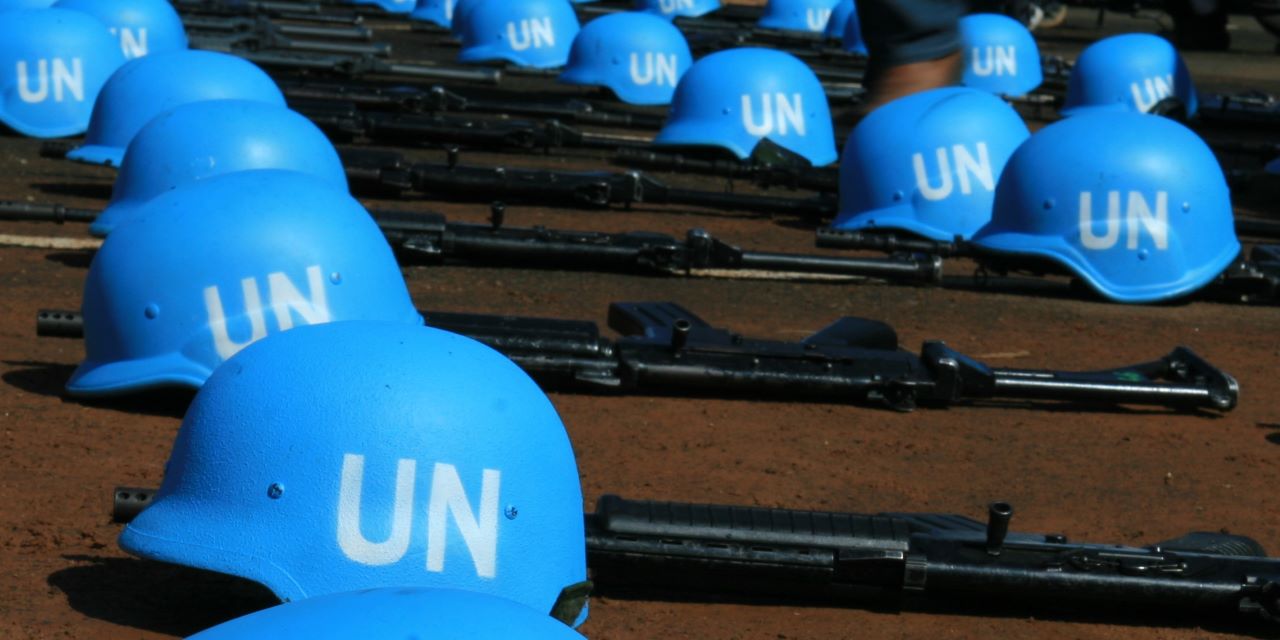Global Challenges to Democracy By Jordan Ryan | 19 September, 2023
Africa's Coups: A Challenge for the UN's Conflict Prevention Efforts

Image: ghaya/shutterstock.com
The succession of military coups in Africa over the past three years has exposed the failure of the United Nations to act coherently to prevent conflict. Seven successful coups have abruptly halted democratic transitions across West and Central Africa. Those coups have undercut democracy while also demonstrating that the UN is falling short of an important mission: to stop violence before it starts.
Recent internal UN reviews have diagnosed the reasons for this shortcoming. One such study found dysfunction in how the UN coordinates its analysis, shares information, and mobilises action within and between its own agencies. Disparate bureaucracies at UN headquarters often pursue fragmented agendas instead of following tailored plans of action that are informed by the countries in which the UN serves. The internal study concluded that the UN lacks the "toolkit" to address looming instability in countries like Sudan where coups later occurred.
This inability of UN offices and agencies to work more closely together to prevent crises, is striking, given the 30 years of directives from successive Secretaries-General mandating greater UN integration. Stubborn divides persist. Development, humanitarian, human rights, and political affairs entities frequently work in silos. The UN's vaunted conflict prevention efforts exist largely on paper.
When acute crises erupt, the UN can respond rapidly, as it did during COVID-19 and the Haiti earthquake. During COVID-19, it mobilised a comprehensive health response to ensure equitable vaccine access. After the Haiti earthquake, the UN coordinated emergency relief efforts. Though brief, these coordinated responses demonstrate the UN's capacity for unified crisis management when needed.
But anticipating stresses within countries and taking early action before crises fester is not a strength of the UN. Poverty, governance failures, climate impacts, and other drivers often contribute to instability long before conflict erupts. By the time acute crises emerge, it is too late for effective prevention. The UN must strengthen its capacities for risk analysis and early intervention. It should also coordinate more closely with regional organisations like the African Union and the Economic Union of West African States (ECOWAS) that often have better access and understanding of local dynamics.
Fortunately, recent internal reviews chart a way forward. An assessment of the UN’s Peacebuilding Support Office recommended it “emphasize prevention”. To do so, it needs enhanced capacity to analyse root causes and rapidly share findings for early responses. Prevention efforts save lives and money. The World Bank estimates that each dollar invested in prevention saves $16 in costs later on.
Likewise, Secretary-General Antonio Guterres’ New Agenda for Peace advocates national prevention strategies. His Agenda portrays “prevention as a political priority” and views the UN as the “pre-eminent hub of global prevention efforts.”
Transforming this concept into reality requires concrete reforms. Steps like joint field analysis units, staff exchanges, and flexible regional offices could enable tailored early action. When supported by the Security Council, interventions can help deter instability before it escalates into violence.
Most crucially, the Council must support prevention-focused peace operations with political strategies, not just militarised crisis management after conflicts erupt. Preventing conflicts requires addressing their root causes through governance reforms, reducing inequality, and managing climate impacts.
With global instability increasing, the UN cannot cling to fragmented business as usual. If conflict prevention continues to founder, so too will peace-building efforts, as crises engulf more nations.
Reinvigorating preventive action gives the UN its best chance to help countries sustain peace, move beyond coups, and end violent conflicts that undermine development. The costs of inaction are too high. The time for reform is now.
Related articles:
Realising the UN's vision: Steps toward a new architecture for peace (3-minute read)
UN proves UN cannot single-handedly usher in a nuclear weapons-free world (3-minute read)
Policy Brief No.139: Nuclear Disarmament and UN Reforms (15-minute read)
Jordan Ryan is a Senior Consultant to the Folke Bernadotte Academy and former Vice President for Peace at The Carter Center. He recently completed an assignment as the lead author of the UN integration review for the Executive Office of the Secretary-General. Mr. Ryan served as UN Assistant Secretary-General and UNDP Assistant Administrator from 2009-2014. He was Deputy Special Representative in Liberia and UN Resident Coordinator in Vietnam. Mr. Ryan has graduate degrees from Columbia University and George Washington University, and received his B.A. from Yale University. He was a fellow at Harvard's Kennedy School.